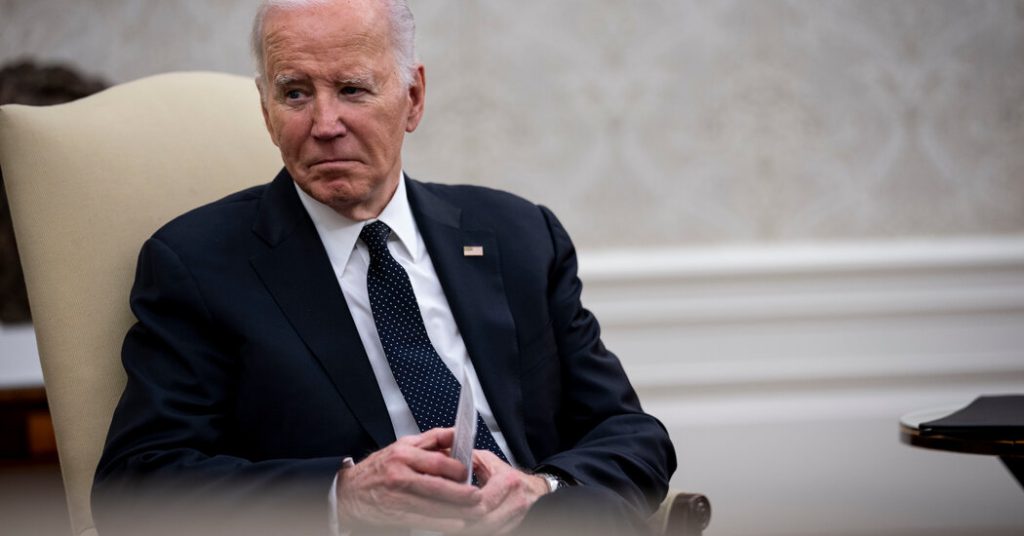President Biden issued a warning to Prime Minister Benjamin Netanyahu of Israel regarding a potential invasion of Rafah, stating that U.S. support would depend on Israel’s actions. Despite the warning and concerns about a humanitarian catastrophe, Israel appeared to be building momentum for the invasion. In response, President Biden decided to block the delivery of offensive arms if a full-scale ground invasion of Rafah took place, sparking a dramatic standoff between the two countries. This confrontation was the result of months of efforts by the President to influence Israel’s behavior, particularly in relation to the situation in Rafah.
Concerns about Israel’s response to the Hamas-led terrorist attack on Oct. 7 led President Biden to take a more active role in trying to influence Israel’s actions. Despite initial reluctance, the President became increasingly frustrated with Israel’s conduct of the war, with tensions coming to a head in February. Mr. Biden expressed his concerns about the potential impact of an Israeli invasion of Rafah on civilians, and the potential to isolate Israel further from the world. The ongoing standoff between Washington and Jerusalem has raised questions about Israel’s intentions and the possibility of a diplomatic resolution.
While President Biden has paused a shipment of bombs and threatened to block other arms deliveries if a ground invasion of Rafah occurs, the U.S. has not explicitly forbidden Israel from operating in Rafah. The focus has shifted towards ensuring that any military action in Rafah is strategic and targeted, rather than indiscriminate. There are indications that Israel may be considering a more strategic approach to addressing the threat posed by Hamas, which could potentially defuse the current clash between the U.S. and Israel.
President Biden’s evolving response to the situation in Gaza reflects a long and complicated journey of engagement with Israel. His administration has faced pressure from within the Democratic Party to take a stronger stance against Israel’s actions, particularly in relation to civilian casualties in Gaza. Over time, the President became more outspoken in expressing his frustrations with Israel’s conduct of the war, culminating in the decision to block weapon shipments in response to the situation in Rafah.
Various members of the administration, including Secretary of State Antony Blinken, have played key roles in influencing President Biden’s approach to Israel. Despite differing views within the administration, the President’s decision to take a tougher stance on arms shipments to Israel has come after a series of discussions and meetings focused on shifting his perspective. The administration is working towards finding a balanced approach that supports Israel’s security while also addressing concerns about civilian casualties and the impact of military actions on the region.
The ongoing tension between the U.S. and Israel has raised questions about the future of their relationship and the possibility of a diplomatic resolution to the situation in Gaza. President Biden’s decision to block the delivery of offensive arms is a significant step towards demonstrating U.S. concerns about Israel’s actions. The administration is navigating a delicate balance between supporting Israel’s security needs and addressing humanitarian concerns, with a focus on preventing further escalation and working towards a diplomatic resolution to the conflict.


